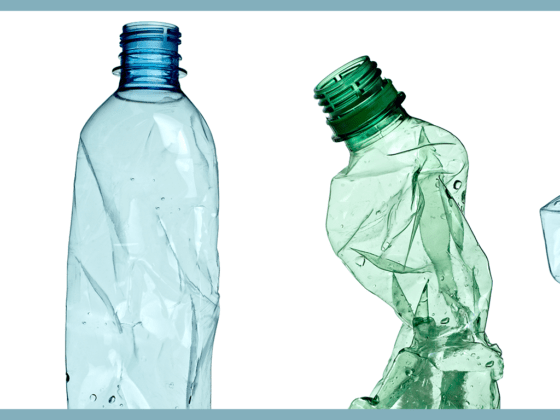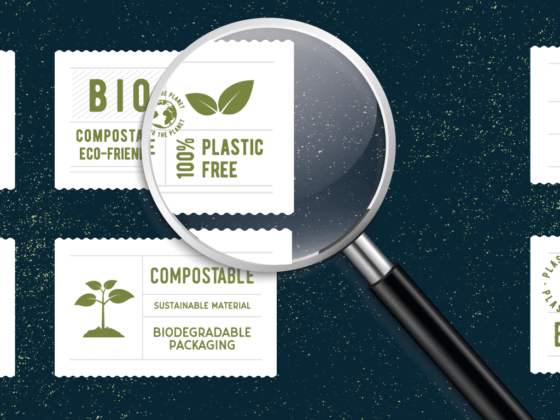The first festival summer is almost over, the big events inspired hundreds of thousands of music fans after two years of Corona break. Hurricane, Rock am Ring, Rock im Park, Parookaville, Deichbrand, and Wacken Open Air – are mega-events with very different target groups, but all with the same problem: sustainability and festivals don’t go together at first glance. Does it at second glance? Our author Carsten Gensing, a festival fan himself (Wacken, Roskilde), takes a look behind the scenes.
Even hard-boiled metallers have a heart for the environment. Under the hashtag #greenwacken, fans exchange ideas on social media channels when it comes to trash. Under the slogans “Metal 4 nature” and “Save your holy land”, the organizing crew appeals: “So we can continue celebrating on green meadows in the future and for all eternity, we need your help again. Please leave your camping areas tidy when you leave.”
Tents, tables, chairs – many things remain on the field
Anyone who has seen the gigantic camping areas on a Sunday after the end of a festival knows that such appeals do not go unheeded, but when it comes to packing up the completely soiled 30-euro tent again after a dust, mud and beer battle lasting several days, the decision is often made against reason and in favor of convenience. Hundreds of tents remain on the Campareas at the end. Just like tables, chairs, grills, umbrellas, tarpaulins, sofas, chairs and even refrigerators. This has nothing to do with sustainability.
Festival power from the bicycle generator
Change of location from Wacken to Hamburg-Rothenburgsort. A completely different picture. The “Futur2Festival” will take place in the Elbpark Entenwerder at the end of August. “We want to prove that culture, sustainability and ecstasy go well together,” write the makers on their website. The two stages will be energy self-sufficient – one powered by solar energy, the second by the muscle power of the visitors, who will pedal on bicycles to generate electricity for the artists. The catering exclusively uses reusable tableware. With impact: on one festival day in August 2019, a total of 100 kilograms of waste was generated after sorting out all recyclable materials. Metaphorically speaking, this is one classic residual waste garbage can full – for the entire waste of 5,000 people.
Hydrogen instead of diesel gensets
Von solchen Zahlen sind die großen Veranstaltungen mit hunderttausenden alkoholisierten und ekstatisch feiernden Fans weit entfernt. Sind Mega-Festivals wie Wacken oder Rock am Ring nicht mehr zeitgemäß? Einer, der intensiv nach nachhaltigen Lösungen forscht, ist Jacob Bilabel, Gründer der Green Music Initiative.

Bilabel’s organization not only takes care of waste avoidance but also sheds light on all sustainability aspects of major festivals. That includes the huge amount of electricity consumed. Several million liters of fuel are burned to power the huge stages with the help of diesel generators, he explained to TV station VOX. “One solution is hydrogen fuel cells,” Bilabel says. The first portable H2 generators have been tested since the beginning of the year and will be used at festivals and on large construction sites in the future.
French fries only on reusable plates
Sustainability professional Bilabel puts the image of the conscienceless festival garbage ape into perspective. “Festival visitors produced in 2019 partly significantly less waste per day and per capita than the national average,” he calculates. In fact, the changes are visible and noticeable at festivals. The unimaginable quantities of beer are served exclusively in deposit cups. At Rock am Ring, french fries are served on returnable plates – for a three-euro deposit. Other organizers use recycled or edible materials for serving food. Also on the list of festivals: dry urinals, water treatment plants, recycling stations, donation campaigns for tents, sleeping mats and sleeping bags.
Against some habits of the fans, even the most dedicated organizers are powerless. One of the most underestimated problems: Cigarette butts. No one has officially counted how many butts are produced during the almost one-week metal fair in Wacken. If we assume the official quota, a quarter of adults in Germany smoke. That would be just under 20,000 visitors in Wacken. If you only count ten cigarettes per head (and that’s a conservative calculation in view of the existing beer mood), you come up with 200,000 cigarette butts – per day. That makes about 800,000 butts on four festival days. On top of that, there are three arrival and departure days. It does not seem exaggerated to assume that a million cigarettes will be smoked in the 200 hectares of holy ground during the festival week.
Anyone who throws away cigarettes is blackballed
One million cigarettes? If we optimistically assume that half are disposed of properly, that leaves 500,000 butts that end up in nature. A truly toxic problem. The Bonn-Rhein-Sieg University of Applied Sciences has calculated: One discarded cigarette butt pollutes about 40 liters of water.
One million cigarettes? If we optimistically assume that half are disposed of properly, that leaves 500,000 butts that end up in nature. A truly toxic problem. The Bonn-Rhein-Sieg University of Applied Sciences has calculated: One discarded cigarette butt pollutes about 40 liters of water.
The problem cannot be solved with the pocket ashtrays from a tobacco manufacturer that will be distributed at the festival. It’s more likely to be solved with pressure from the community. “What kind of monkeys are out and about here?” asks a user in the Facebook group of Wacken fans (40,000 members) just a few hours after the campsites opened, “there are constantly glowing cigarette butts in the grass here, I put out 12 yesterday alone and disposed of them in the trash.”
Wacken boss Thomas Jensen is proud of the growing awareness in the community. Jensen told Deutschlandfunk radio: “We’re all pulling together. I’m not going to stand here and say, ‘Wacken knows how to do it.’ But Wacken will definitely be there when we learn how to do it.”
That’s the good news: the topic is on the agenda at all festivals, progress is visible, there is momentum. But the festival organizers can’t do it all on their own – in the end, it’s up to the people who attend the events: the responsibility lies with each and every one of us.
 English
English Deutsch
Deutsch




